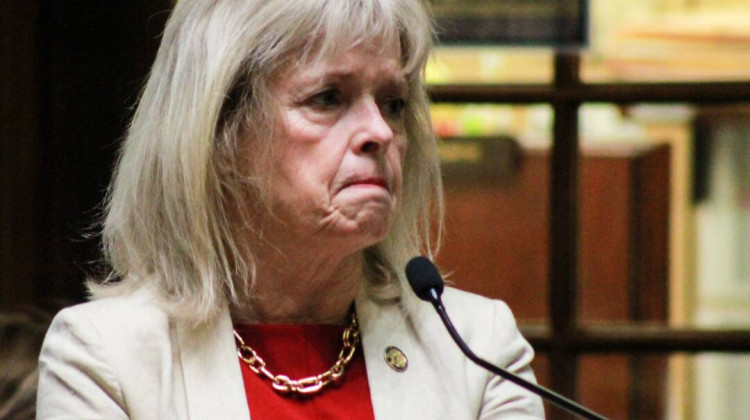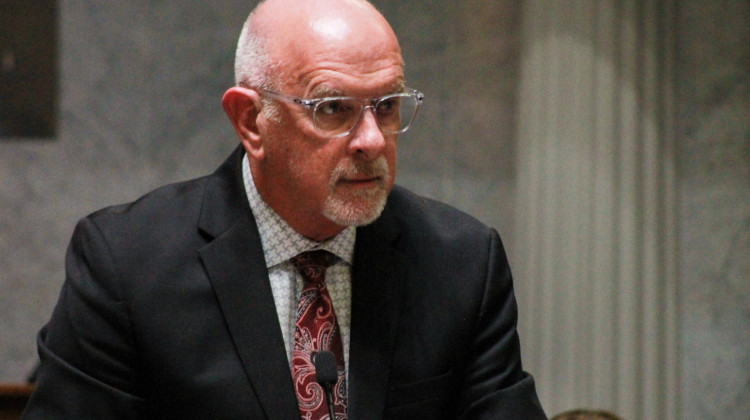
Under the proposed rule, coal plants that don't have a planned retirement date, like Duke Energy's Gibson coal plant seen here, would have to either store their carbon emissions underground or run at a lower capacity — possibly possibly using hydrogen made with renewable energy.
Rebecca Thiele/IPB NewsUtilities, industries and state regulators are all concerned about a proposed federal rule to nearly eliminate carbon emissions at power plants. It was one of many topics at a legislative summer study committee last week.
The rule would require coal and natural gas plants to store 90 percent of their carbon dioxide emissions underground in about a decade. Plants could also choose to shut down or operate less often — possibly using hydrogen made with renewable energy.
The Environmental Protection Agency said these big cuts to pollution could generate up to $85 billion in climate and health benefits for the country by 2042.
Indiana Department of Environmental Management Commissioner Brian Rockensuess said many of these technologies haven’t been proven at the scale needed for Indiana utilities. Even if they were, he said that’s not enough time for them to get the permits, permissions and build the infrastructure needed for these projects.
“How do we permit them knowing that they're going to be out of compliance the minute we give them that permit?” Rockensuess said.
Join the conversation and sign up for the Indiana Two-Way. Text "Indiana" to 73224. Your comments and questions in response to our weekly text help us find the answers you need on statewide issues, including this series on climate change and solutions.
Skip Kropp is a lawyer who represents the utility trade organization Midwest Ozone Group — which often opposes stricter pollution standards. Kropp said moving away from fossil fuels would threaten reliability — especially at a time when extreme weather has led to the possibility of more outages.
“The proposed rule exacerbates significant risks that have developed because of the mandatory energy source transition, including ongoing and premature retirements of dispatchable resources," he said.
Resources that can produce energy at any time — unlike wind and solar.
It’s worth noting that climate change — caused by the burning of coal, oil and natural gas — is making things like extreme heat more likely.
No one in favor of the EPA’s proposed rule to cut carbon emissions at power plants was asked to speak at the committee.
Rebecca is our energy and environment reporter. Contact her at rthiele@iu.edu or follow her on Twitter at @beckythiele.
9(MDAyMzk1MzA4MDE2MjY3OTY1MjM5ZDJjYQ000))
 DONATE
DONATE






 Support WFYI. We can't do it without you.
Support WFYI. We can't do it without you.